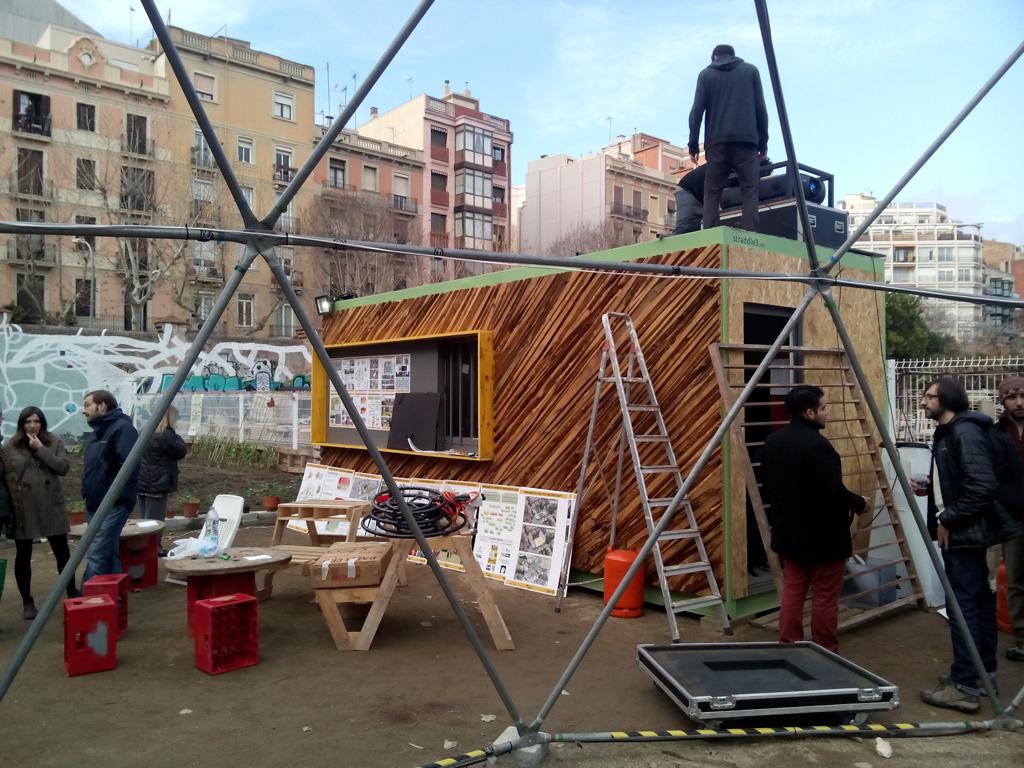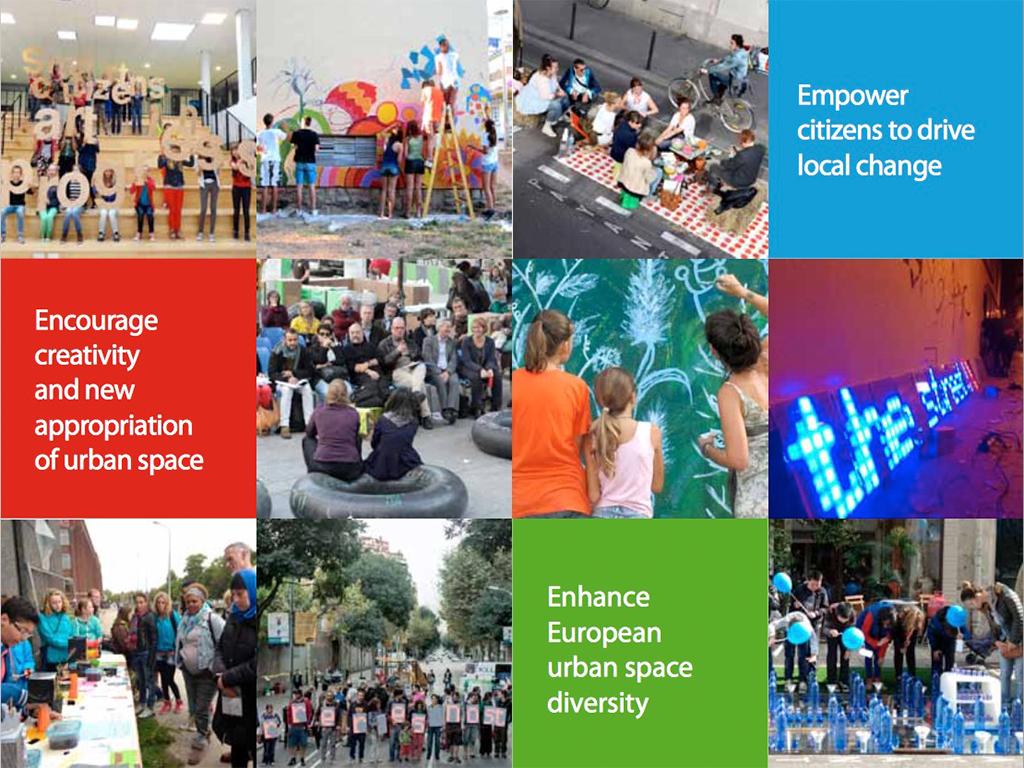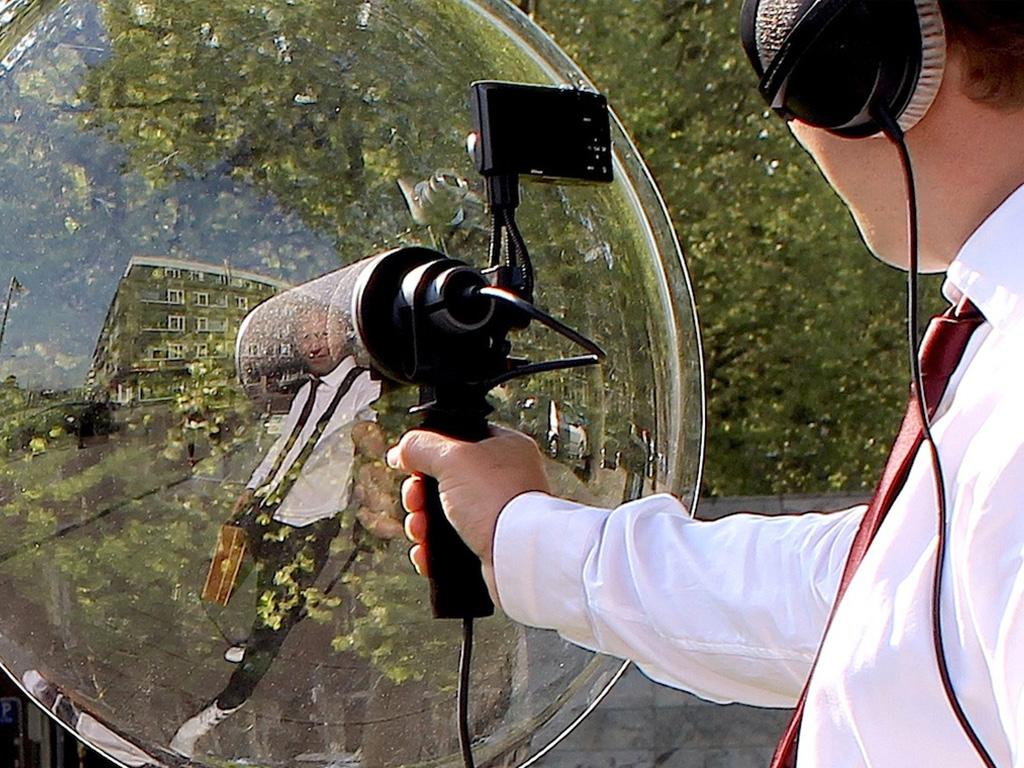In the context of growing urbanization and digital shift, cities have to face an acceleration of urban, social, cultural and economic fragmentation, reinforced by the economic crisis. When dealing with the reduction of this urban fragmentation, the traditional top-down process is showing its limits. There is a real demand from citizens, professionals and political stakeholders for new processes to make the city, bottom-up and participatory, favouring innovative answers, adapted to new uses. The cultural sector has a main part to play in the development of new, innovative practices, to promote social urban innovation and to enhance European territories creative potential.
Waag is partner in the Eclectis project, in which we experiment with participation processes and artistic interventions in urban space. Last weekend in Barcelona, we visited the seminar and urban interventions performed by Idensitat and its local partners around Germanetes, a vacant site in the ‘Left Eixample’ of Barcelona. In a four-year project, they explored the role of creative practices in relation to citizen action networks of assuming and advancing proposals for future urban transformation.
During a partner discussion at a very nice neighbourhood paella lunch, occupying the streets of Barcelona, we decided upon collecting and analyzing the specific principles or mechanisms that proved to be successful in our local contexts, in order to be able to transfer these lessons learned in some sort of manifesto towards other cultural organizations, citizens initiatives and policy makers. And to pay special attention to the specific skills that artists and other professionals initiating and serving these kinds of projects should master or develop.
In this manifesto we intend to answer some of the following questions: Which principles or mechanisms foster participation in urban development processes? What empowers citizens to drive local change? And what skills are required to be able to serve these kinds of processes?
At our Amsterdam Eclectis week in September, we already identified some principles that proved to be successful in our project:
- DIY approach: learning by doing, making instead of only talking, empowering, ownership over what one makes
- Working with artists: disruptive nature of work, innovative approach, questioning what we take for granted, stimulating new dialogue
- Thematic approach: offering a new lens or vision, stimulating curiosity and raising awareness and connectedness
- A three-step process:
- research: discovering things yourself, stimulating curiosity
- diagnosis: giving meaning to findings, interpretation and debate
- intervention: translating meaning into concrete action (perspective) - Multidisciplinary approach
- Meeting of worlds, questioning daily practices, mutual learning, dialogue and ratifying expertise
These principles relate closely to Waag’s vision and daily practice, in which the cooperative process of making, learning by doing and bringing together people form different disciplines are crucial elements. But, as our discussions evolved, a statement by Jeanne van Heeswijk, who presented her work the previous day, stayed on my mind. Jeanne stressed the importance of listening. To actually take the time and make the effort to listen to all people involved and to train yourself and to keep on improving your listening skills. The way she described it and how she implements it in her work, it almost sounded like a craft. And as I kept on thinking about it during my flight home, I was not only impressed, but also felt somewhat puzzled.
Do I myself master the craft of listening? And, if I do, do I apply that skill in the work I do?
In various previous projects I participated in, I did experience the importance of two closely related elements: friction and trust. The first time a group of youngsters I was working with, clashed in a serious conflict about the name and logo of a future youth centre in Amsterdam, I freaked out. After weeks of passive and disinterested responses to all our efforts of engaging them in the process, the hell broke loose. And I did not know what to do. Until I realised that the fact that they became angry, meant they actually cared and that we all needed this conflict and battle to be able to overcome it together. And the only thing I had to do was to listen to them, to trust them and give them the power to come up with their own solutions and to act upon it. And by doing so, not only the conflict was being solved, but more importantly, the youngsters’ ownership over the project grew stronger.
In our next Eclectis project meetings in Kotor and Ljubljana (probably in April and June), in various sessions we will start mapping our mutual skills, principles, mechanisms and strategies to foster participation and empowerment. And I am convinced the skill of listening will play a central role. Meanwhile, I will consciously start challenging my listening skills in my daily life and work and I invite you to challenge me.
You can read more about the Eclectis activities at our Eclectis project page. A report on the Amsterdam week (pdf) can be found here.


